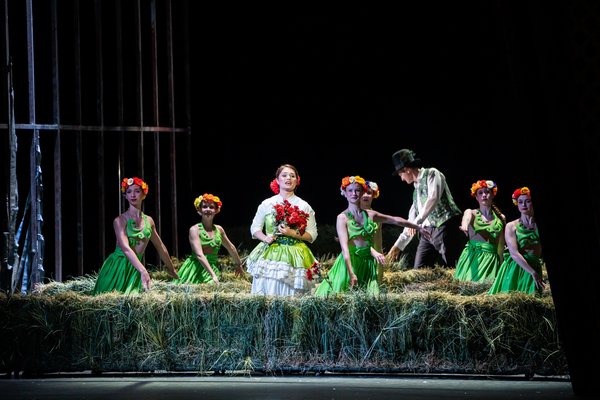
THE SPINNING ROOM
In Brief
Folk scenes in Hungarian, with Hungarian and English subtitles
“A people can best be known through their folk songs,” claimed Zoltán Kodály, one of the crucial proponents of Hungarian music, whose main ambition as a composer, collector of folk songs and music teacher was to inculcate a love for Hungarian folk song and to cultivate a knowledgeable audience.
The Spinning Room is the epitome of Kodály's efforts. When the Opera commissioned a full-length version of the work from the composer in 1931, it wasn't an opera that Kodály intended to write – instead his aim was to re-discover the Hungarian folk song and relay its simple dramatic power.
Kodály was of Polish extraction on his mother's side. And now, breaking with convention, audiences will get the chance to see through the eyes of a Polish director, Michał Znaniecki, how a foreign artist perceives this quintessentially Hungarian work.
Synopsis
The Lady of the house's husband is dying; the woman and her young daughter are soon left bereft. With an aching heart, the mourning widow remembers her younger days, when she was getting to know her future husband. In order to cheer up her saddened daughter, she sings Cockrikoo! to her. While they are getting ready for the funeral, the Lady of the house reminisces further and further back into the past, recalling how she and her suitor were married. The lovely memory of the wedding, however, is suddenly overshadowed by the ominous appearance of the Flea. The Lady of the house continues with her recollections, recalling the birth of their daughter. After the funeral, she erupts in grief into the Ballad of the Bad Wife. Suddenly, she seems to see her dead husband in front of her again, but then is forced to realize that it was only an illusion. Feeling bitter, she goes to bed and – refusing to accept either comfort or food from her daughter – she is gradually consumed by sorrow. Her daughter mourns her in silence. The Lady of the house and her husband are reunited in heaven.
Gallery
Reviews
"Znaniecki can be one of those directors who bring an over-packed suitcase of ideas, yet here his imagination never overpowered the work. Making the parting something even more tragic—and surreal when the man returned as a vision—he underlined both the profundity and innocence of the piece."
John Allison, Opera
